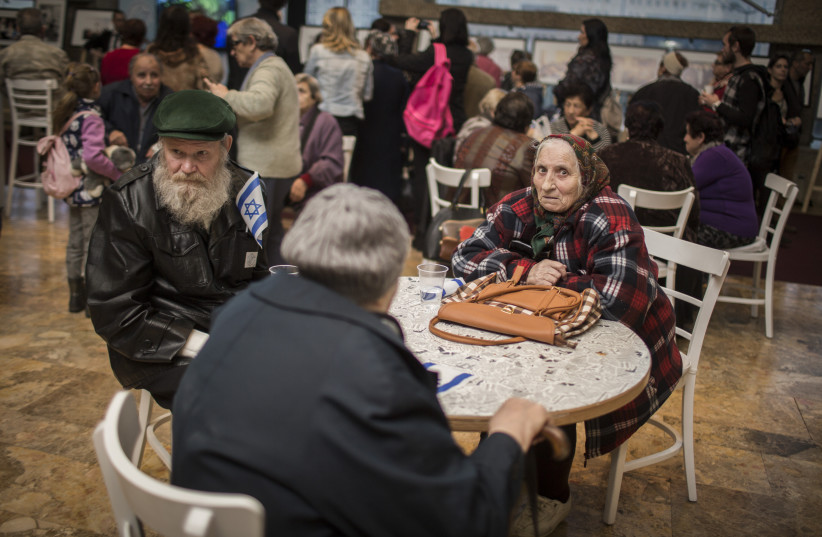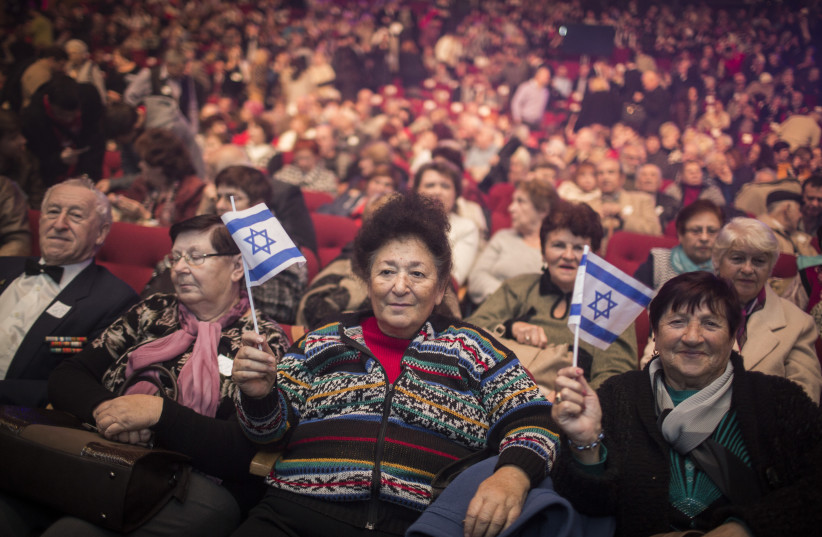 Russian Jews are not a political pawn – editorial
Russian Jews are not a political pawn – editorial
JPOST EDITORIAL
The Jewish community in Russia has grown in recent decades, after mass migration in the 1990s. The current war has led to concerns about their future.”

Controversy over Russia’s potential actions against the Jewish Agency are concerning. We reported this week that Russia had ordered the Jewish Agency to cease activities inside the country. The Jewish Agency has said the directive was not explicitly to close completely but only to close some operations. However, the very appearance that something is amiss comes in the context of increasing pressure on the Jewish community in Russia and concerns over how the conflict in Ukraine can lead to fear.
According to the exclusive report by The Jerusalem Post’s Zvika Klein, Russia has accused the agency of illegally collecting information on Russian citizens. While there might be a diplomatic solution to this controversy that will require the intervention of Prime Minister Yair Lapid, the overall context is disturbing because Jews who live in Russia, Ukraine or other places need to be allowed to feel safe from being used as pawns in conflicts.
Antisemitism: the stuff of war
Historically, Jews have come under threat during conflicts and national emergencies, even those that have nothing to do with them. This has been the case in Europe for more than 1,000 years. Jews were often singled out during periods such as the Crusades, the bubonic plague and the Inquisition.
The war in Ukraine has now revealed how Jews can be targeted or used by both sides. Moscow has constantly sought to claim that Ukraine is a “Nazi” country, abusing the memory of the Holocaust as part of modern conflict. In Ukraine, Jews have also found themselves in a complex situation because there are adherents of the far Right who hold antisemitic views or downplay the role of some Ukrainians in the Holocaust. At the same time, Ukraine has often slammed Israel during the conflict for not doing enough.

Jews constitute a small minority in Russia but have figured prominently in Russian history. Jews suffered in pogroms in the early 1900s. They suffered during Stalin’s purges, during the Cold War and as victims of stereotypes after the Iron Curtain fell. At each juncture, however, Jews have also thrived and played an important role in all spheres of society. The Jewish community in Russia has grown in recent decades, after mass migration in the 1990s. The current war has led to concerns about their future.
During the beginning of the conflict, there were concerns for the community, and thousands of Russians – those who could – got out. The Post has reported on fear within the community, including the fear of not being able to leave Russia if things get worse. This is why the Jewish Agency is important. Its primary role is to facilitate immigration to Israel.
Israel has a responsibility to help
Israel has competent diplomats who can help ease the situation. Lapid has worked to navigate crises over the past year and it is possible for Israel to work with Moscow to make sure that the situation does not deteriorate. However, the fact that this controversy has erupted illustrates how delicate and tenuous relations have become.
“We must ensure that their scope of operation is maintained as it has been throughout the years,” Aliyah and Integration Minister Pnina Tamano-Shata has said. “I appealed to the prime minister to work with the Moscow administration to resolve the problem, and I want to strengthen the Jewish community in Russia, which must be worried at this time about the consequences of the decision. Aliyah is a basic right for the Jews of Russia, and we will make sure that it is preserved as such,”
The State of Israel has a responsibility to be vigilant against any attempts to politicize the Jewish community in Russia during times of crisis. Israel and Russia have good relations and we want those relations to remain warm. At the same time, the conflict in Ukraine must never be used as an excuse by either side to pressure the Jewish community.
If some Jews prefer to leave or stay, this is their right, and Israel must always be ready to receive those who need assistance. Organizations such as the Jewish Agency should be accorded the freedom they need and not become the subject of foreign political debates heightened by conflicts abroad
Zawartość publikowanych artykułów i materiałów nie reprezentuje poglądów ani opinii Reunion’68,
ani też webmastera Blogu Reunion’68, chyba ze jest to wyraźnie zaznaczone.
Twoje uwagi, linki, własne artykuły lub wiadomości prześlij na adres:
webmaster@reunion68.com
